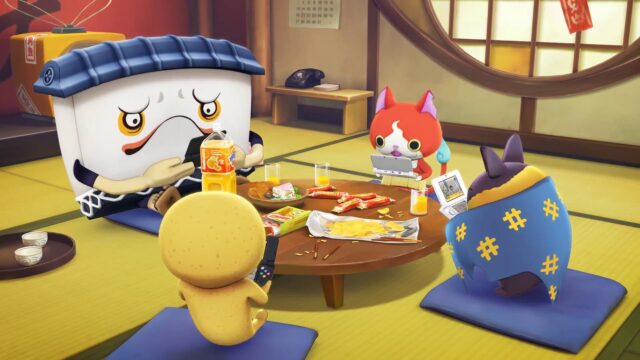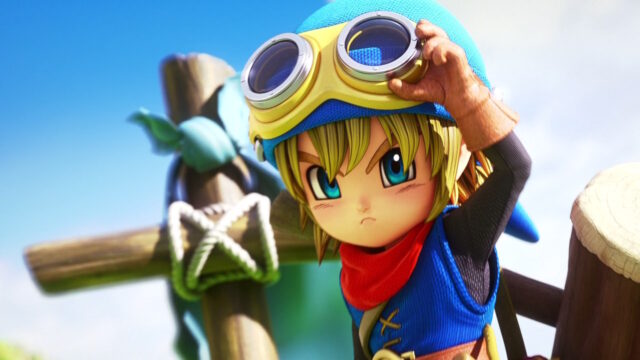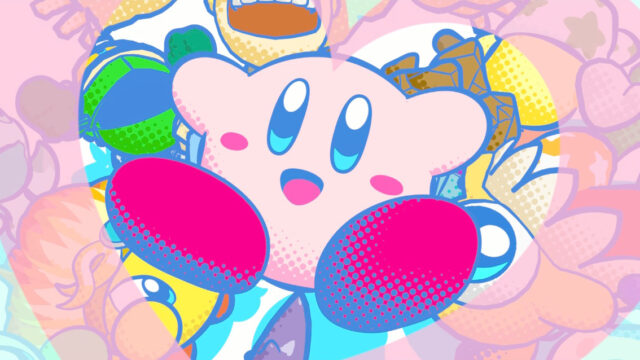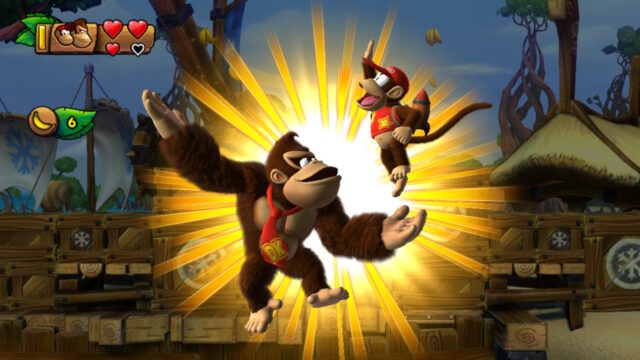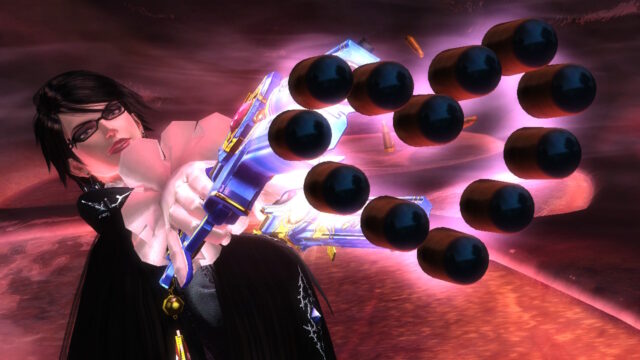Shelter Review
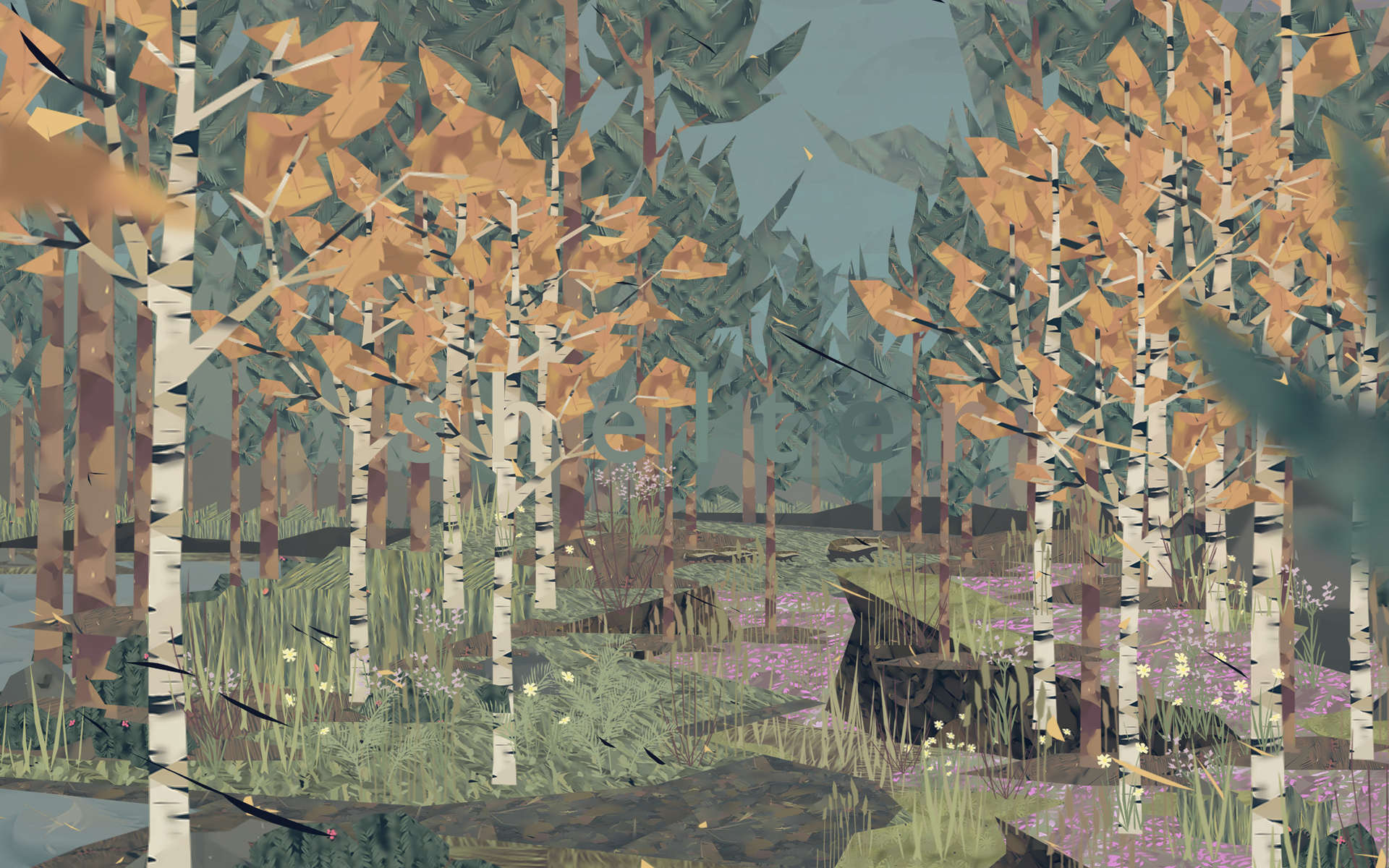
My first offspring died in the midday sky – an unfitting place for a badger’s death. We ran through thick grass, hiding from the predator circling in the clouds, whose winged shadow circled around us. He knew we were somewhere below, cowardly running from him. But thick grass knows how to keep secrets, grass always speaks only in whispers. But when it ran out, we had no choice but to make a terrifying desperate leap to the salvation of a gentle log. My first offspring, small and hungry, ran last. He squealed incessantly as sharp claws pierced his fur. Peering out from the log, we watched him die in the heavens. And there were only five left.
In Shelter, the third game from indie developers Might and Delight, you play as a badger, but that’s not the most interesting part – you play as a mother badger. This game is about care, about looking after those who are smaller and weaker than you. It’s a game about maternal and paternal anxieties that lie deeper in our consciousness, somewhere at the core of primal instincts. Your task is simple and as old as the world: provide shelter for your offspring, ensure the safety of the young ones, and feed them. And if you fail – fail in the fundamental duty of a parent – your grief will be close to unbearable.
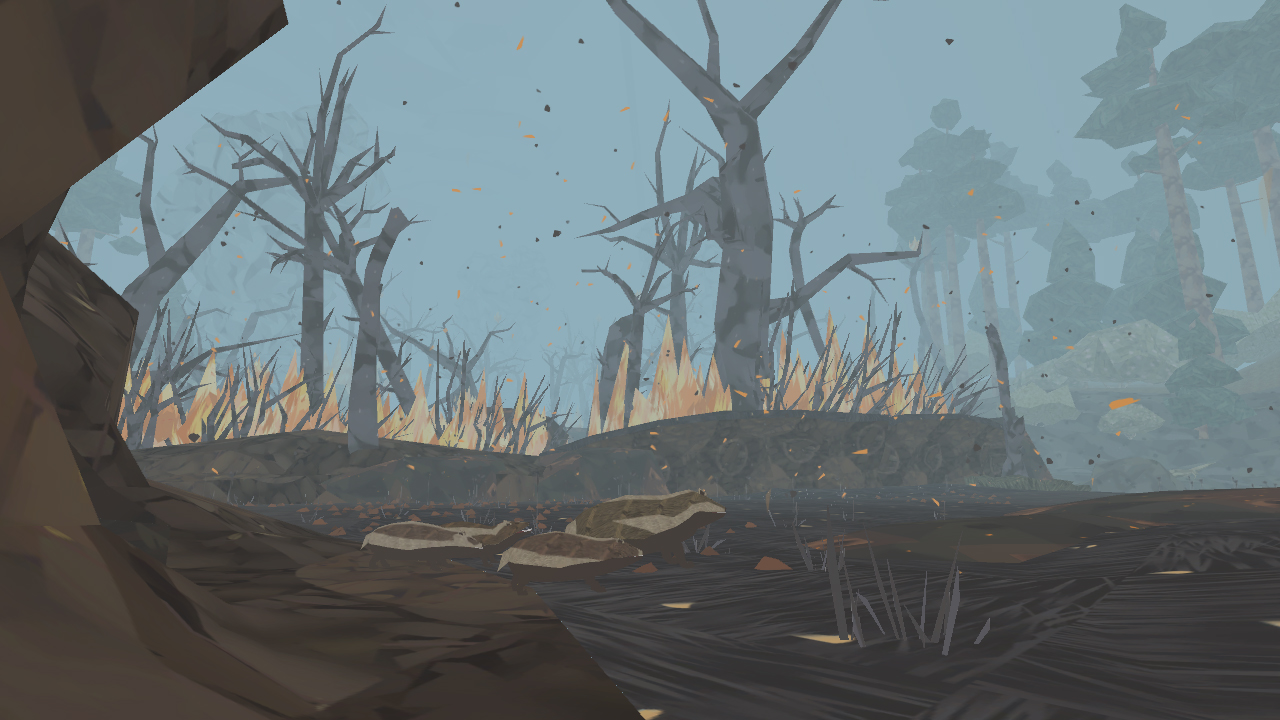
Your offspring are becoming pale due to malnutrition. Make sure that their food is distributed evenly.
My third offspring died in the midnight forest – a more fitting place for a badger’s death, but no less bitter. I didn’t even see who grabbed it. I didn’t even hear it, I was too busy searching for an answer to my offspring’s constant and merciless question: “When will we eat again?” An apple fallen from a tree, a turnip pulled from the ground, a caught frog – there is never enough food. The offspring weaken from hunger. Not only do they visibly tire, but their color also becomes paler. The shelter found will protect you from the cold, but the main killer is hunger. Hunger, an eagle, and someone who took the third offspring. And there were only three of them left.
It’s terrible to think about it, but it’s impossible not to think about it because it’s an inevitable truth: the fewer offspring, the easier life becomes. There is more food around (you no longer need to gather every plant or hunt every fox and divide it among five) and it’s easier to keep track of the offspring. Moving becomes easier with the death of the offspring. Thus, Shelter presents a brilliant adaptive complexity. The more offspring die, the more mistakes the game forgives you. On the other hand, the more offspring die, the less you forgive yourself.
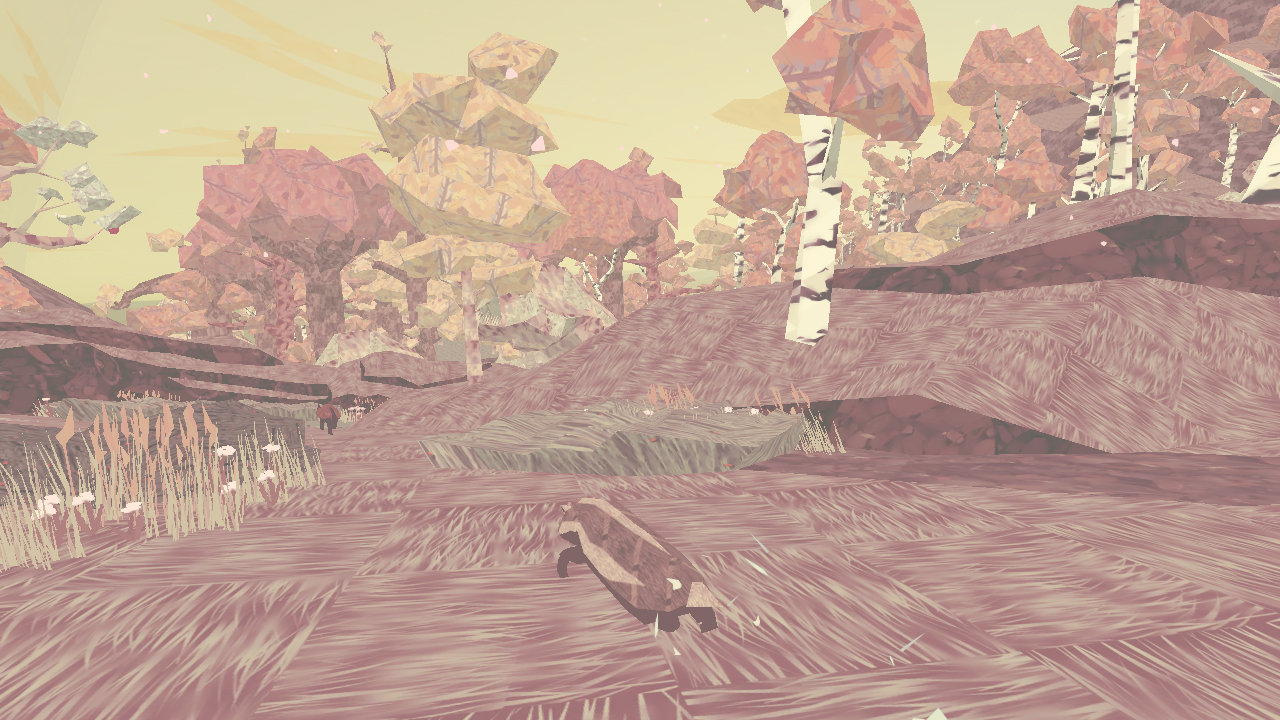
You can kill foxes for food, but they are much more agile than badgers, so you need to approach them carefully for a close-range jump.
My fifth cub was swept away by a river current. We were crossing the river – here we constantly have to cross rivers – and it looked quite safe. The current barely covered the underwater rocks, so our short paws allowed us to walk on them. I was already on the other side with three paws when I heard the furious roar of the approaching wave. It was rushing along the ravine, all covered in foam out of anger. It took away the fifth little badger. There was not a single squeak, and when the water receded, there was only a dead shocking silence against the backdrop of an instant and irreversible tragedy. And I was left alone.
The loss of life in video games can have different meanings depending on the context. For example, in Super Mario, for a resurrecting plumber, it is easy and effortless. It does not become an instant defeat there. But in Shelter, your lives are not just numbers in a corner of the screen or in some menu. These are the lives of your five cubs that obediently follow you everywhere. Lose one and you will diminish not only in quantity. Piece by piece, you will lose a part of yourself in this world. Rarely does any game express your losses in such a clear and urgent way. Your mistakes live with you not as scars, but as the absence of what you have lost.
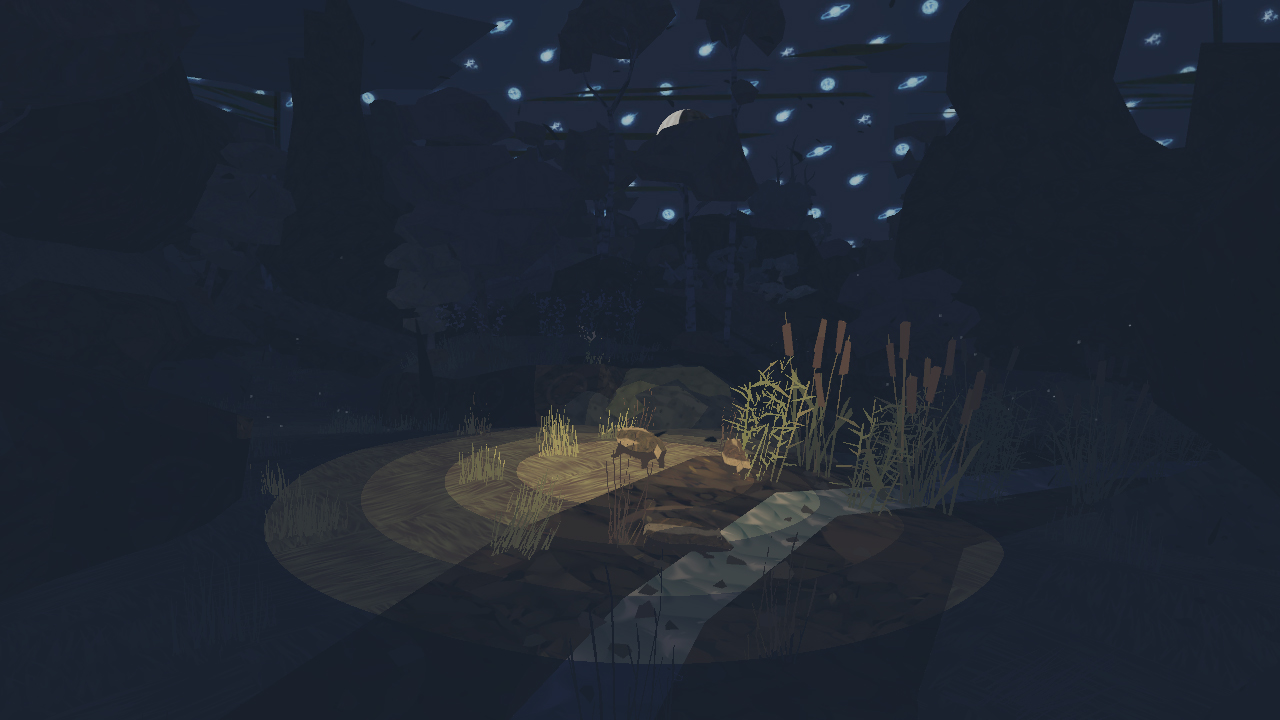
At night, the young ones can get scared of the noise and get lost. You must find them quickly and return them to their relatively safe orbit.
After the first acquaintance, all the difficulties of Shelter become clear and easily overcome. Moreover, Might and Delight has exhausted interesting ideas too quickly. This is a fertile, unexplored territory where more scenarios can be invented and a range of dangers can be expanded. Towards the end of the short and linear journey, threatening situations begin to repeat themselves and become increasingly tiresome with each repetition. And then, just when the designers’ inspiration seems to have completely faded, the ending surprises you – an extremely powerful moment, an ode to motherhood, that leaves you sitting in silence, bewildered and melancholic.
Even without considering this elegant twist, Shelter remains an impressive game, not least because of its stunning aesthetics. The soft colors of its plains and hills captivate with their charm and Scandinavian motifs. From the swirling patterns of Hokusai framing a turbulent river, to stencil planets accentuating the night sky, to the jagged post-rock with the reverberation of leisurely guitar picking and percussion – all of this gives the game a beautiful form. And the rare parental instincts and the tale of care and self-sacrifice fill it with equally beautiful content.
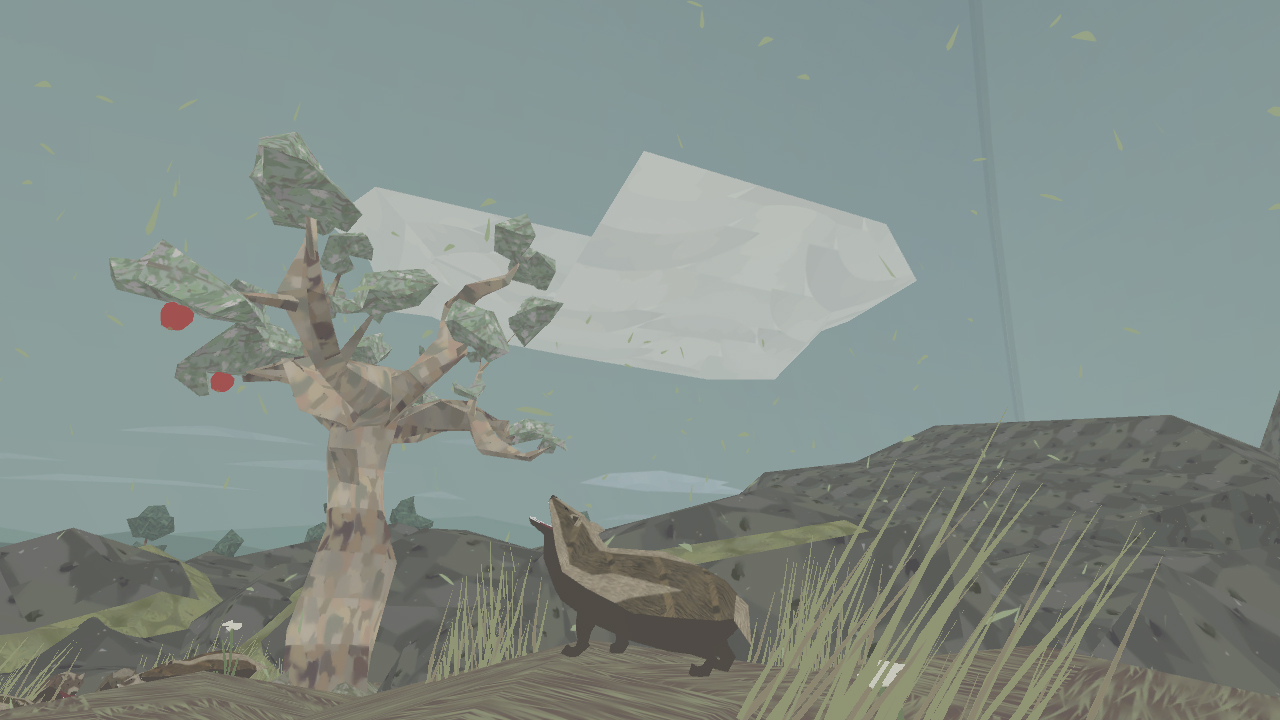
2 apples on the badger’s chest, the game deserves a rating of 8 out of 10.
Share
Discuss
More Reviews
